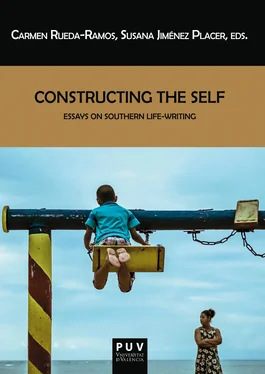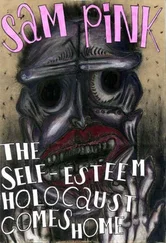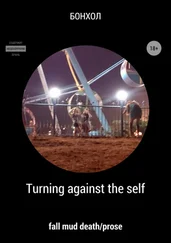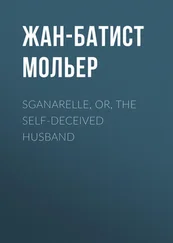AAVV - Constructing the Self
Здесь есть возможность читать онлайн «AAVV - Constructing the Self» — ознакомительный отрывок электронной книги совершенно бесплатно, а после прочтения отрывка купить полную версию. В некоторых случаях можно слушать аудио, скачать через торрент в формате fb2 и присутствует краткое содержание. Жанр: unrecognised, на английском языке. Описание произведения, (предисловие) а так же отзывы посетителей доступны на портале библиотеки ЛибКат.
- Название:Constructing the Self
- Автор:
- Жанр:
- Год:неизвестен
- ISBN:нет данных
- Рейтинг книги:3 / 5. Голосов: 1
-
Избранное:Добавить в избранное
- Отзывы:
-
Ваша оценка:
- 60
- 1
- 2
- 3
- 4
- 5
Constructing the Self: краткое содержание, описание и аннотация
Предлагаем к чтению аннотацию, описание, краткое содержание или предисловие (зависит от того, что написал сам автор книги «Constructing the Self»). Если вы не нашли необходимую информацию о книге — напишите в комментариях, мы постараемся отыскать её.
Constructing the Self — читать онлайн ознакомительный отрывок
Ниже представлен текст книги, разбитый по страницам. Система сохранения места последней прочитанной страницы, позволяет с удобством читать онлайн бесплатно книгу «Constructing the Self», без необходимости каждый раз заново искать на чём Вы остановились. Поставьте закладку, и сможете в любой момент перейти на страницу, на которой закончили чтение.
Интервал:
Закладка:
Douglass combined purpose and commitment to a larger community, that is, he embraced a political outcome for his writing. You may recall in his narrative that, in the foiled attempt to escape from Maryland, Douglass had formed a group with four fellow enslaved men to plot their departure. Criticisms about Douglass’s individualism to the contrary, there is no gainsaying that Douglass saw himself as a part of a community and that he hoped for freedom for himself as well as for those enslaved with him. He makes that even clearer at the end of his narrative when he writes in the “Appendix”:
Sincerely and earnestly hoping that this little book may do something toward throwing light on the American slave system, and hastening the glad day of deliverance to the millions of my brethren in bonds—faithfully relying upon the power of truth, love, and justice, for success in my humble efforts—and solemnly pledging myself anew to the sacred cause,—I subscribe myself, FREDERICK DOUGLASS. ( Narrative 162-163)
That larger political or communal objective, that “sacred cause,” not only defined what Douglass wanted to achieve in Narrative of the Life of Frederick Douglass , but it also defined what Harriet Jacobs hoped to accomplish in Incidents in the Life of a Slave Girl (1861). In showing her commitment to a purpose larger than her own freedom, Jacobs, in the preface to her narrative, writes:
I have not written my experiences in order to attract attention to myself . . . But I do earnestly desire to arouse the women of the North to a realizing sense of the condition of two millions of women at the South, still in bondage, suffering what I suffered, and most of them far worse. I want to add my testimony to that of abler pens to convince the people of the Free States what Slavery really is. Only by experience can any one realize how deep, and dark, and foul is that pit of abominations. ( Incidents 1-2)
Booker T. Washington, in his Up from Slavery (1901), had a political agenda as well. Famed scholar William L. Andrews asserts of Washington’s narrative:
Washington wrote his autobiography in part to show the great benefit that such institutional training [the industrial school at Tuskegee Institute] could be to African Americans making the transition from slavery to freedom. The best-selling African American autobiography of the early twentieth century, Up from Slavery , combined the classic formula of the individual success story with a shrewd though oblique and politic plea for racial solidarity through affiliation with African American-controlled institutions. ( Oxford Companion 36)
Indeed, several African American scholars have argued that, in their prioritizing communal concerns over individualistic ones, formerly enslaved African American narrators effectively instituted the tradition of African American literature. Following their publications, most African American writers would insist upon a purpose-driven focus for their imaginative creations. As Richard Barksdale and Keneth Kinnamon point out in their Black Writers of America (1972), African American writers found their commitment to social justice as one of their earliest motivations to creativity. The quest for liberty and equality, Barksdale and Kinnamon assert, was one of the three prongs that shaped African American literature. The other two were the appeal of Christianity and questions of identity in relation to American democracy and the incorporation—or not—of the black body into that democracy. Questions about the purpose of African American literary production have engaged writers from the mid-nineteenth century until contemporary times. For an extended period, notions of being a “Negro writer” or “a Negro who just happened to be a writer” plagued creators of African American literary texts. Theorists from W. E. B. Du Bois to Richard Wright to Amiri Baraka weighed in on the relationship of art to propaganda, of creativity to social justice.
Early life narrators, in their commitment to community, were far less troubled by their reasons for literary creation than were their later peers. Even when they were unsure about what the outcome of their writing skills would yield, they never doubted the value of their stories or the purpose for which they wanted to tell those stories. Once slavery was abolished, however, and the immediacy of life and death threats was lessened slightly, other motives for literary creativity in life writings entered the picture. I seriously doubt that Langston Hughes wanted to transform American society when he published The Big Sea (1940), which chronicles his early life, his adventures in New York during the Harlem Renaissance, and his first trips to Africa. Similarly, Claude McKay probably did not contemplate national politics overly much when he published A Long Way from Home (1937). These narrators during the 1920s and 1930s provide the beginnings of a tradition of individualistic life narration that would stretch from that period into contemporary times. Even when some writers earned national reputations, as Hughes and Richard Wright did, it is challenging to determine where their life narratives offer the direct political commentary that characterized narrations by enslaved persons.
With Wright, another dimension is added when we consider that Wright is composing about his life experiences in the Deep South, that part of the United States that had been most maligned during the days of slavery. Certainly Douglass and Jacobs were enslaved, but their enslavement was in the upper South states of North Carolina and Maryland. It was therefore possible, given the proximity of those states to northern, free territory, for those enslaved to plot their routes to freedom—as Douglass and Jacobs assuredly did. The Deep South, on the other hand, presented additional problems. The vastness of geography made it far less likely that enslaved persons could escape from bondage. Trying to navigate on foot from Alabama, for example, through Georgia, South Carolina, North Carolina, Virginia, and other states before arriving in the North would have been almost impossible. Thinking of a southern route of escape, perhaps by way of New Orleans and stealing aboard a ship bound for the Northeast, would have been equally challenging. It is no wonder, therefore, that those confined to slavery in the Deep South viewed it essentially as a death sentence. It is thus not surprising that there are no classic narrations of enslavement in Deep South territory from those formerly enslaved on that soil. It is well into the twentieth century and with the likes of Richard Wright that narrators begin to chart their lives in the southernmost part of the United States. And you can’t get much farther south than Mississippi, which is where Richard Wright came to consciousness in the second and third decades of the twentieth century.
The racism that inspires Wright’s recollections is certainly a part of the national fabric, but it is much more a part of southern landscape, southern territory, southern history, southern law, and southern customs. As a life narrator, therefore, Wright is shaped by that territory, and his narrative reflects that shaping. While that territory and that shaping were certainly communal, collective factors, I argue nonetheless that Wright determines to carve out an individualistic response to that territory and that shaping. Other blacks might suffer racism, but Wright presents them as too mentally dulled to feel it to the depths of their beings as he does. In one instance in Black Boy , for example, Wright recounts witnessing a black man’s allowing a white man to kick his rear end. Wright is disgusted, but the presumed victim explains that he has earned a quarter in the process, and quarters are hard to come by. In another instance, Wright depicts an encounter with a black mother and daughter; the mother is desperate to get Wright to marry her daughter, even though he has met her only a few hours before. In Wright’s estimation, these are pathetically un-understanding black peons whose intellectual capacities and abilities to comprehend their impoverished life circumstances and conditions of oppression are far beneath his own. Unlike Douglass, Wright does not feel sympathy for these black people. He wants to get away from them. Ironically, his lack of emotional identification with them does not preclude his using them in penning his life narrative, using them in fact as examples less to show pervasive racism than to show his intellectual superiority.
Читать дальшеИнтервал:
Закладка:
Похожие книги на «Constructing the Self»
Представляем Вашему вниманию похожие книги на «Constructing the Self» списком для выбора. Мы отобрали схожую по названию и смыслу литературу в надежде предоставить читателям больше вариантов отыскать новые, интересные, ещё непрочитанные произведения.
Обсуждение, отзывы о книге «Constructing the Self» и просто собственные мнения читателей. Оставьте ваши комментарии, напишите, что Вы думаете о произведении, его смысле или главных героях. Укажите что конкретно понравилось, а что нет, и почему Вы так считаете.












